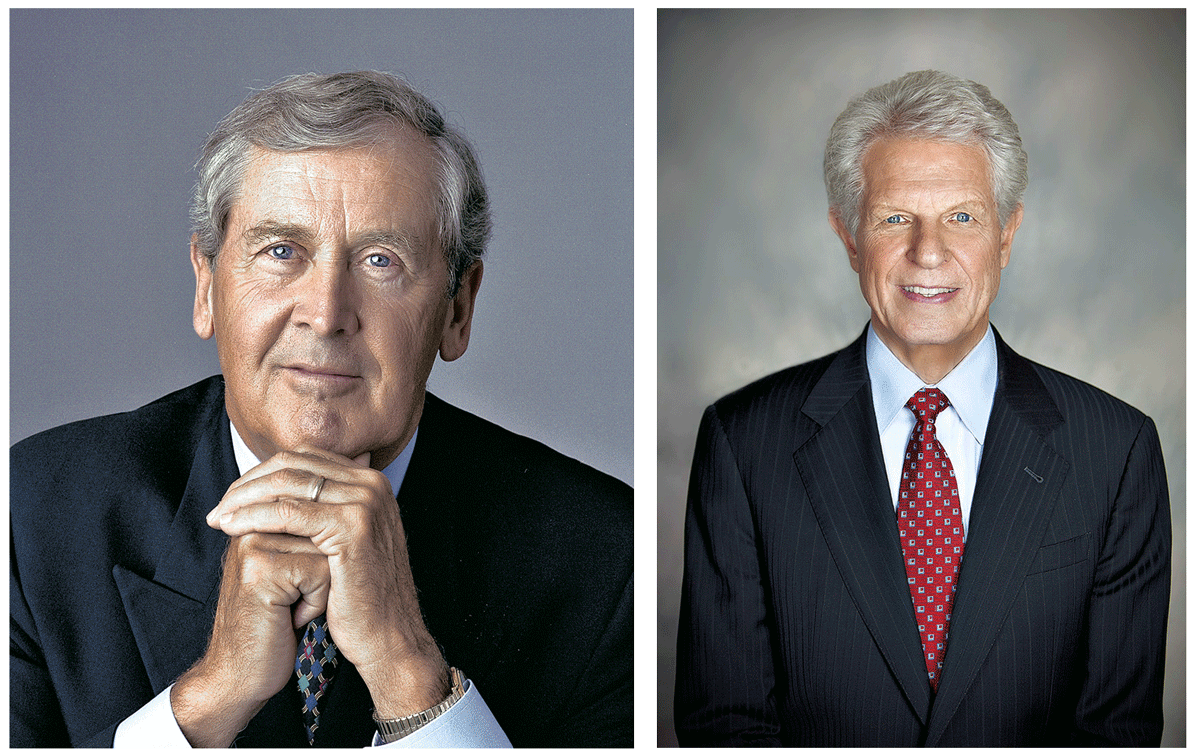A recent conversation with a client looking for an ad agency was a reminder of just how little of its own dog food the industry eats. Her assertion that “they all look the same and say the same things” highlighted just how difficult brand differentiation is. It’s so hard in fact that even those who claim to do it for a living struggle to do it for themselves.
Marketers come to ad agencies for what they hope will be clear brand strategy, distinctive brand positioning and brilliant storytelling. Ad agencies should be the living proof of what is possible, and the work they do to position their own agencies should be the exemplars – and yet many seem, on review, to display an underwhelming ability to position their own agency brands in ways that make the choices clear and valuable for clients.
It’s not about the work – Visit umpteen traditional and digital agency websites and the first thing you’ll see is a plethora of projects, with Cannes winnings and other awards displayed proudly. The work is the product for agencies. Get that. The awards are the certificates of excellence. Get that too. But when everyone claims to do great work, when everyone wins awards (one year or another) and/or when you can’t see the relevance of any of the work to what you need, it fails as a differentiating factor.
It’s not about the people – Advertising, like all professional services, is a knowledge sector. It’s powered by people, and a great number of those people are very, very good at what they do. So having great people, or even a large number of people, is unlikely to transform your agency into the go-to – because there are thousands of great teams globally. Industry insiders get very excited about who is where and what they’ve done. To everyone else, it’s a hygiene factor. Again, marketers expect top flight agencies to have top flight people. It’s important for marketers to know who they are going to work with, obviously – but is it a compelling reason to prefer? Probably not unless they know the industry from the inside very well indeed. (They also know that the chances of them ever working directly with the creative ‘stars’ are close to zero unless they have a very, very large account.)
It’s not about the process – The methodology is the methodology. It’s how the agency gets you to the end point. It should be robust and measurable. But is it a point of difference? Absolutely not. Because, again, most agencies have robust and proven methodologies. It’s not a secret sauce anymore. It’s expected.
It’s not about the global network – Another proof point that fails to fire as a point of difference. If you’re a mega-agency, then your network is likely to be matched by the number and spread of offices of all your major competitors. And being part of one acronym conglomerate, again, means very little in terms of preference apart from the affiliation that a corporate may have to a particular advertising group. Everyone sees through the “we collaborate closely” fairy-tale. Once again, global marketers expect their agencies to be global. That’s not a point of difference in an industry that is increasingly globally scaled.
Another interesting point to note. None of these positioning pillars is emotional in terms of its effect on a prospect. Agencies tell their clients time and again that functionalism is dead as a value proposition, and that they are master storytellers, and yet they themselves resort to the very same types of proof points and they wrap them in a very pragmatic framework. It’s not that the work isn’t inspiring or that the people aren’t interesting or that the process and reach aren’t impressive, it’s that in and of themselves they are not competitive reasons to prefer. When one agency’s excellence is matched by another, excellence is normal.
Out there in the agency world, there’s a lot of talk about dwindling fees and disloyal clients, about work being taken in-house and the convergence of the sector. But if the agencies that make these complaints were assessing another industry, they would read the symptoms for what they are: classic signs of a sector that is commoditizing because it cannot express in compelling terms the value it provides. Ex-agency people will probably read the situation slightly more bitterly: the love for creative that built the legendary agencies and that clients embraced has been swapped for a passion for billings as the industry corporatizes, the numbers people take over and marketers lose their imagination and courage.
The Right Brain Studio sums up the situation: “Much of the fault is squarely on the agencies as the business merged its way into a jumbled mess of virtually interchangeable, commodity-like entities lacking any true brand identity. But the targets of the ad agencies, the clients, are also to blame. They keep looking for ways to cut agency compensation, which inevitably leads to diminished service. More importantly, they don’t want to be challenged.”
Tim Williams blames the agency-seekers for not understanding what they’re buying. “If procurement and marketing professionals adopted the view that they’re purchasing desired results for their company, they might be inclined to actually pay their agency partners more, not less…The right agency partners, compensated in the right way, can create tremendous brand value for their clients.”
Again, presented with this situation and such an argument, an agency with any strategic bend would advise a client in any other industry that it is not the role of the customer to set the value equation. It is the role of the brand to tell a wonderful story with a point of view that makes the case that William refers to in a powerful, visceral and distinctive way. If Volvo can make a steering system compelling, surely a company that is packed with ideas can find a way to demonstrate its own magic.
If agencies want to change the way they are valued it’s time, I feel, for them to start asking themselves some very different questions, posed from the point of view of those doing the hiring:
- Since you are in the business of ideas, what is your most powerful idea for yourselves? Why should we value it?
- How can you change our world? What will you bring out in us that no-one else can?
- What can I tell my executive team about what you’ll achieve that will truly excite them?
- How will my team feel when we work with you – and how do you help us feel that way? (Why is that different from how I’ll feel working with anyone else?)
- Why do you get the work you do – and what work do you not do? How do you approach that work and how will you apply that philosophy to our work?
- What qualities do you look for in the people you hire that make it possible for you to work that way?
- What’s the most palpable result you have achieved for a client this year? Why did that happen – and how did your participation secure that? What pressures did you overcome to make that happen? How will you apply the learnings from that to us?
- What’s the one thing you are best at? And when? How have you focused your energies to achieve that?
- What should we most trust you with? (And why should we trust you with that more than we should trust others?)
Build out those stories. Share them in transfixing ways. Eat up.
The Blake Project Can Help: The Brand Positioning Workshop
Branding Strategy Insider is a service of The Blake Project: A strategic brand consultancy specializing in Brand Research, Brand Strategy, Brand Licensing and Brand Education





2 comments
Bill Crandall
July 27, 2015 at 8:21 pm
The thing about any brand or agency positioning is that “positioning” is an internal process that we do. Whereas, brand “position” is how the product or service is actually perceived by the marketplace in the consumer’s mind. And they are not the same thing, as Ries & Trout first noted in their landmark marketing book, “Positioning. The Battle for Your Mind”, which still stands!
The problem for most agencies today is that they believe their own bullshit and think they are well-positioned. But as this article highlights, they are not. All basic credentials being equal, clients really can’t tell the difference.
Of course there are some obvious exceptions: Grey for consumer packaged goods (CPG); Ogilvy for financial services; RPA or Campbell-Ewald for automotive; etc. But even then, these agencies must appear to be “all things to all people” due to existing client category conflicts, or they won’t grow. And as we say in the agency business … “Grow or Die”.
The irony of it all is that most agencies don’t advertise, with or without a brand “positioning” or “position”. Which makes it pretty hard to tell one agency brand from another, and the whole question of agency “positioning” almost academic. Bill Crandall
Grant Bentley
July 31, 2015 at 3:25 pm
A results oriented marketing agency also now competes with the “service divisions” of the purveyors of marketing technology software (think Hubspot). The landscape has changed dramatically with the advent of integrated platforms that nurture customers and prospects to self-qualify themselves for the sale of incremental or new services and products.
A growing, progressive agency needs more than craftspeople of brand positioning but also needs producers of ongoing lead generation using the most capable tools available. The reason why the global networks are making investments in tool companies is to better compete with these “service divisions” by moving past being tool users and become tool owners.
Comments are closed.